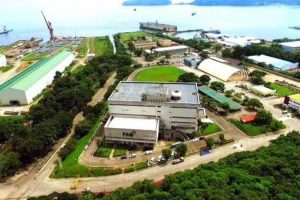Freeport Area of Bataan gears up to lead Asia’s blockchain industry
The Freeport Area of Bataan (FAB) is poised to become one of the key blockchain hubs in Asia, with significant developments already underway. The FAB is a 1,700-hectare trade hub located in Mariveles, Bataan, serving as the Philippines’ center of trade and a key transit point for domestic, regional, and global shipping. Apart from being […]

The Freeport Area of Bataan (FAB) is poised to become one of the key blockchain hubs in Asia, with significant developments already underway.
The FAB is a 1,700-hectare trade hub located in Mariveles, Bataan, serving as the Philippines’ center of trade and a key transit point for domestic, regional, and global shipping.
Apart from being a trading hub, it is also a manufacturing center for various global industries, such as lenses, luxury brand accessories, sports equipment, and more, providing nearly 40,000 jobs within the region.
Under the mandate of RA 11453, the FAB is positioned to become the country’s hub for emerging and future technologies like blockchain.
“We also look to the future as allowed by amended charter, apart from manufacturing. We now additionally cover Bataan as a home for the global blockchain industry,” Mohammed Hussein Pangandaman, CEO of the Authority of the Freeport Area of Bataan (AFAB) said during the 2nd day of the 2024 Global Block Chain Congress held in Bataan.
Five years after the implementation of RA 11543, Mr. Pangandaman highlighted key developments, including the release of the Offshore Digital Assets License (ODAL) Policy last year.
The key points of the ODAL policy include the licensing of blockchain-related industries based on the nature of their activities, divided into three categories.
Class 1 includes digital asset exchanges, trading activities utilizing blockchain technology, and similar operations.
Class 2 covers digital asset token offerings, and crowdfunding activities such as Security Token Offerings, Initial Exchange Offerings, Utility Token Offerings, and related activities.
Class 3 encompasses allied activities that use technology to facilitate the transfer, storage, or generation of virtual assets, as well as payment solutions and digital wallet service providers, among others.
Meanwhile, the accreditation of local service providers is also included in the ODAL Policy such as customer support, R&D and technical support, cybersecurity services data center, and similar activities aimed at supporting blockchain-related operations.
“Starting this year, we have already accepted applications for the Offshore Digital Assets License (ODAL) and have already approved a Class 1 license and a local service provider,” Mr. Pangandaman said.
Mr. Pangandaman also emphasized the development of office spaces in FAB, aiming to provide essential services such as virtual office addresses, phone numbers, hot desks, and temporary workspaces for emerging industries.
“Work is now ongoing so that we can begin to offer you, office spaces around the middle part of next year. We have allocated half of our fourth-floor building for virtual offices and co-work spaces,” he added.
Improved internet connectivity was also boasted as the rollout of the underground fiber optic cable network was already completed.
“And we are now working to activate it with a bandwidth that will be responsive to the requirements of your industry,” Mr. Pangandaman said.
Mr. Pangandaman noted that with the help of citizens and dialogue among various stakeholders, the AFAB’s mission of creating an environment where blockchain industries can thrive within a regulated network can be achieved. – Edg Adrian A. Eva
















